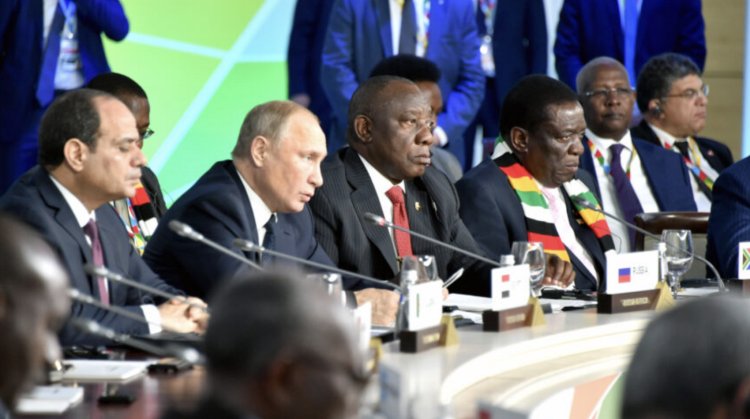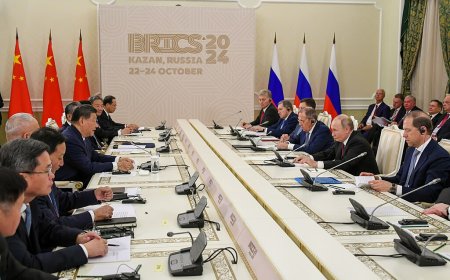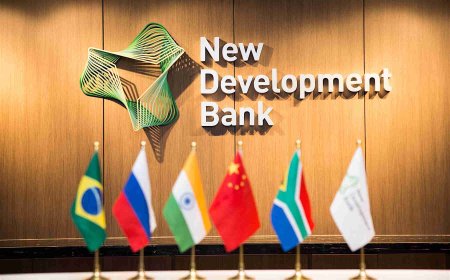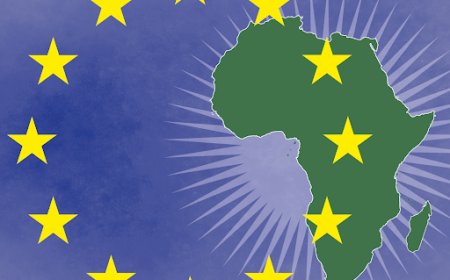This article is part of a series on the effects of the war in Ukraine on African countries. The series is edited by Chris O. Ogunmodede.
Summary
- Russia is now the most sanctioned country in the world, with individuals, companies and other targets from Russia facing more restrictions than those from Iran, Syria, North Korea, Venezuela, Myanmar and Cuba combined.
- Russia is returning to tactics from 2014 as it seeks to navigate the international landscape amid the punitive measures imposed mostly by Western countries.
- Moscow is seeking to build up new alliances beyond the West and shore up its existing relations with long-time partners around the world.
- In Africa, Russia sees an avenue to wield influence. Defense and security are the main anchors of Russian involvement in Africa.
- Jostling for influence requires financial commitments that may be beyond Russia. Despite Russia’s best efforts to demonstrate that it can forge new partnerships despite Western efforts to isolate it, its roadmap for doing that has been complicated by its commitments in Ukraine.
Russia’s invasion of Ukraine sparked a furious attempt by the United States and the European Union to turn it into an international pariah state. Russia is now the most sanctioned country in the world, with individuals, companies and other targets from Russia facing more restrictions than those from Iran, Syria, North Korea, Venezuela, Myanmar and Cuba combined. The sanctions, imposed in the aftermath of Russia’s incursion mostly by Western nations as well as their Asia-Pacific allies like Australia, Japan and Singapore are a significant escalation of the economic warfare they have waged against Russia since 2014, when Russian troops invaded and annexed the Crimean Peninsula of Ukraine, and Moscow stepped up its support for separatists in the Donbas region of eastern Ukraine.
For its part, Russia too is returning to tactics from 2014 as it seeks to navigate the international landscape amid the punitive measures imposed mostly by Western countries. Moscow is also seeking to build up new alliances beyond the West and shore up its existing relations with long-time partners around the world. The West’s 2014 diplomatic isolation of Russia caused Moscow to intensify its search for new international partners, with Russia’s “return” to Africa culminating in the 2019 Russia-Africa summit in Sochi, a diplomatic coup for Moscow that saw 43 African heads of state and government in attendance. It comes as no surprise to see Russia now double down on those efforts.
Russian Foreign Minister, Sergey Lavrov, paid a visit to Algeria last month, his first trip to the North African country since 2019, to mark 60 years of diplomatic relations between both countries. During his visit, Lavrov complimented Algiers for its “understanding” of what Lavrov called the “complex problems” in Ukraine. Algeria and Russia share a long history of warm relations and Algeria accounted for 15 percent of Russia’s global arms exports between 2016 and 2020, according to data from the Stockholm International Peace Research Institute.
Lavrov’s visit came amid broader Russian efforts to retain Algeria’s support amid Moscow’s diplomatic isolation, especially at a time when EU countries like Italy and Spain are turning to Algeria and other African countries in search for alternatives to energy imports from Russia. Before Lavrov’s visit to Algiers, Russian President Vladimir Putin called his Algerian counterpart, Abdelmadjid Tebboune, to discuss the “situation in Ukraine.”
Separately, Lavrov confirmed that the Wagner Group, the shadowy private military company with ties to the Russian oligarch Yevgeny Prigozhin and which has been accused of being Moscow’s “proxy force,” is present in Mali on a “commercial” basis. This admission marks a departure from months of denial by Malian and Russian officials about Wagner’s footprint in Mali despite Western intelligence claims and reports by locals in central Mali that Russian-speaking men were involved in a massacre there in March.
Elsewhere, Cameroon’s defense minister signed a military cooperation agreement in April in Moscow. Just two months earlier, Sudanese military leaders who seized power from the civilian transitional government that was formed after the removal of longtime ruler Omar al-Bashir three years ago visited Moscow. Taken together, these efforts form part of Moscow’s strategy of expanding its diplomatic footprint in order to compete with the West. With the Wagner Group’s presence in Mali and the Central African Republic, as well as other security theaters across Africa, Russia has signaled a willingness to be a credible alternative for countries who complain about paternalism from and even neglect by the West. Regarding its security agreements with African governments, for instance, Moscow’s position is essentially of being a trustworthy partner in the fight against terrorism and insecurity, one willing to forgo appeals to human rights or democratic principles many African governments regard as insincere, hypocritical and counterproductive.
But despite Russia’s best efforts to demonstrate that it can forge new partnerships despite Western efforts to isolate it, its roadmap for doing that has been complicated by its commitments in Ukraine. British intelligence reports suggest Wagner mercenaries are being pulled out of deployments in Syria and Libya to engage in the war effort in Ukraine.
But the most significant impact of Russia’s war in Ukraine on its Africa strategy, however, is its lack of financial resources to compete with its geopolitical rivals — the U.S., E.U and China — at scale. After the collapse of the Soviet Union, Russia was owed more than $17 billion by various African countries, most of those debts now written off. Since Russia jumpstarted its engagement with African countries after a long post-Cold War lull, it has focused on enlarging its footprint on the cheap, mostly by focusing on relatively smaller countries like the Central African Republic and Mozambique and has spent modest sums of money to compete with its ostensible rivals. This approach stands in contrast to China, which has allocated more than $150 billion in loans, grants and aid to fund physical infrastructure and other projects across Africa, bolstering its perception among African governments and publics along the way. Polls consistently show that most Africans hold positive opinions of China. Its soft power tools have flourished, too. The Confucius Institute, a cultural initiative similar to France’s Institut Francais and the U.K.’s British Council, has 48 centers across Africa, the second-largest number of such cultural organizations on the continent. And although China’s investment in Africa has slowed down recently, the popularity of its Belt and Road Initiative, or BRI, has forced the U.S. and EU to launch what essentially are copycat schemes of the BRI in a bid to stay competitive with Beijing.
It is within this context that Russia is expected to jostle for influence with other world powers. Even before the war in Ukraine broke out, Russia’s Africa strategy amounted to very little beyond weapons sales and inelegant attempts at winning hearts and minds with soft power engagement, including a movie depicting gun-toting Russian tourists saving the day on the eve of an election in CAR.
The entirety of Russia’s trade relations with the African Union’s 54 countries is about $20 billion, a sum that Putin admitted at the 2019 Sochi summit was “not enough.”. The Sputnik V coronavirus vaccines were supposed to demonstrate Russian generosity to African countries at a time when Western countries were hoarding more vaccines than their citizens needed. Instead, Russia’s “vaccine diplomacy” efforts with the Sputnik V vaccine ended in a debacle after South Africa’s regulatory agency refused to authorize its use citing health and safety concerns.
Prominent Russian foreign policy analysts were aware of shortcomings in their country’s relations with African countries, long before war broke out in Ukraine. Sergey Karaganov, an influential member of the Russian Foreign Ministry’s council on foreign policy, recently convened a panel of experts that concluded in a November 2021 report that Moscow must honor pledges it made over the years if its overtures to Africa were to find lasting success. There have been several high-level meetings and military cooperation agreements between Russia and about 17 countries since the panel of experts was convened, most of which have so far failed to yield tangible results.
For all the appeal Moscow’s frequent allusion to sovereignty and non-interference in African domestic affairs has, Moscow appears to realize it has enormous work to do if it is serious about gaining more influence in Africa. With Russia now working with a smaller foreign affairs budget, an uphill task lies ahead for Moscow in its desire to compete with its rivals for African hearts and minds. The likeliest outcome is that Russia will double down on its commitments to the countries where it already has a significant footprint, and refrain from expensive aid or development schemes elsewhere that it realistically cannot sustain.
The 2022 Russia-Africa summit Moscow that was initially planned to hold as a follow-up to the 2019 gathering is not expected to go ahead, according to diplomats familiar with the situation. This development, coupled with Russia’s modest footprint on the continent, necessitates a conversation about Russia’s role in Africa that is sober and grounded in the available facts as they exist.
Russia has indeed expanded its influence in Africa in the last decade compared to its post-Cold War status quo ante, but its modest finances will likely keep its lofty ambitions in check. There are no permanent friends or enemies in diplomacy, but only aligned interests. China’s increased influence in Africa perhaps demonstrates that best: providing loans and technical expertise to countries in dire need of both is an effective way to win hearts and minds. By contrast, Russia’s framework for engagement in Africa appears devoid of a coherent strategy beyond harking back to Cold War-era messaging at a time when commercial opportunities have proven more impactful than ideology. This is not a winning strategy, particularly for a country that views itself as an “important balancer” between Western and Chinese influence on the continent.
About the Author
Aanu Adeoye
Aanu Adeoye is the Mo Ibrahim Foundation Academy Fellow with the Russia-Eurasia Programme at Chatham House where he focuses on Russia-Africa relations.




